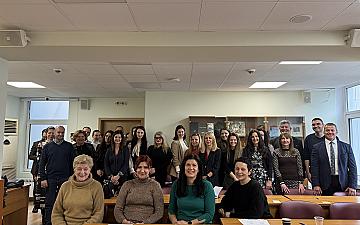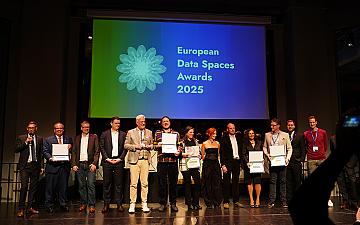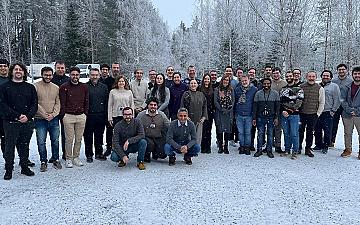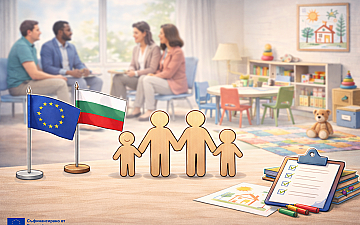To meet the needs of fathers prisoners, best practices from all around Europe are gathered by experienced practitioners in the filed by NESTOR project. The good examples are incorporated into training manuals targeted at fathers and prison counselling staff. By training the fathers and the staff, responsible parenthood is supported and facilitated in the prison.
Capacity building for prison staff in Bulgaria
In the beginning of October, four workshops for prison social workers and psychologists in main cities with prisons in Bulgaria: Stara Zagora, Plovdiv, Pazardhizk and Sofia will take place. The training materials: Educational Toolkit for Parents – Prisoners” and “Handbook for coordinators of Parenting Schools in Detention Centers” will be presented and validated by local practitioners. Below are short summaries of the manuals prepared for prisoners and their psychological supporters.
Handbook for coordinators of Parenting Schools in Detention Centers
The manual for coordinators is divided into 12 meetings. Several activities are presented and can be configured according to the population and the needs that will arise. The handbook is based on good practices from different European countries.
Three Axes of Good Practices
Creating a Supportive Environment: One essential axis of good practices involves creating an environment within detention centers that accommodates children and partners of prisoners during visits. The aim is to ensure that interactions are positive and do not cause emotional distress or negative memories for the participants, especially the children. By establishing a welcoming atmosphere, detention centers can foster healthy relationships between imprisoned fathers and their families.
Providing Counseling Support: Not only should prisoners receive counseling, but their family members should also have access to counseling services. This support can be delivered both inside the detention centers and through technological means, allowing for communication and guidance even from a distance. Counseling helps address emotional challenges, facilitate communication, and promote healthy coping strategies for both fathers and their families.
Educating Imprisoned Fathers: The third axis of good practices centers on educating incarcerated fathers about their parental roles. Parenting is a continuous learning process, and providing educational programs within detention centers can equip fathers with essential parenting skills. Such programs can focus on effective communication, setting boundaries, and nurturing healthy parent-child relationships.
Notable International Examples
While each country's approach to supporting imprisoned fathers may differ, there are notable international examples of good practices. Some countries have implemented programs that involve father-child activities within detention centers, allowing fathers to bond with their children in positive ways. Others have organized parenting workshops, where fathers can learn and share experiences about fatherhood.
In some instances, innovative technological solutions have been employed, enabling virtual visits and communication between imprisoned fathers and their families. This approach fosters a sense of connection despite physical distance, and counseling services can be provided through virtual platforms.
By drawing inspiration from international good practices and tailoring approaches to suit individual detention centers' needs, we can work towards creating an environment that supports the transformative power of parenthood. Through collective efforts and innovative practices, we can help fathers behind bars play an active and positive role in their children's lives.
An Educational Toolkit for Parenting from a Distance
The "Educational Toolkit for Parents - Prisoners" is designed to provide support and guidance for incarcerated fathers as they navigate their roles from behind bars.
The purpose of the educational toolkit is to aid fathers who are serving sentences in maintaining meaningful connections with their children and family. Written by psychologists and family therapists the manual aims to empower incarcerated fathers through parenting group sessions. It comprises texts, images, and activities for the group sessions, all geared towards promoting active and enjoyable participation.
Navigating the Twelve Meetings
The parenting group sessions consist of twelve meetings, each focusing on different aspects of fatherhood from a distance. The sessions encompass themes like identity and self-determination, the parental role, communication and emotions, non-violent communication, building prestige within the relationship, setting boundaries, managing loss and distance, and more.
Through experiential exercises and storytelling, participants in these meetings share their experiences, emotions, and ideas, fostering an environment of trust and mutual learning. The manual encourages fathers to be open in expressing their thoughts and feelings, contributing to a supportive atmosphere for personal growth and transformation.
Policy workshop in Brussels
In the beginning of November, in Brussels, a Policy workshop will take place that will gather representatives from different organizations dealing with adult education and human rights. During the meeting, the participants will get to know the methodology and results of NESTOR project and discuss policy recommendations to be included in the final report on key measures for practical implementation of the results of the project.








